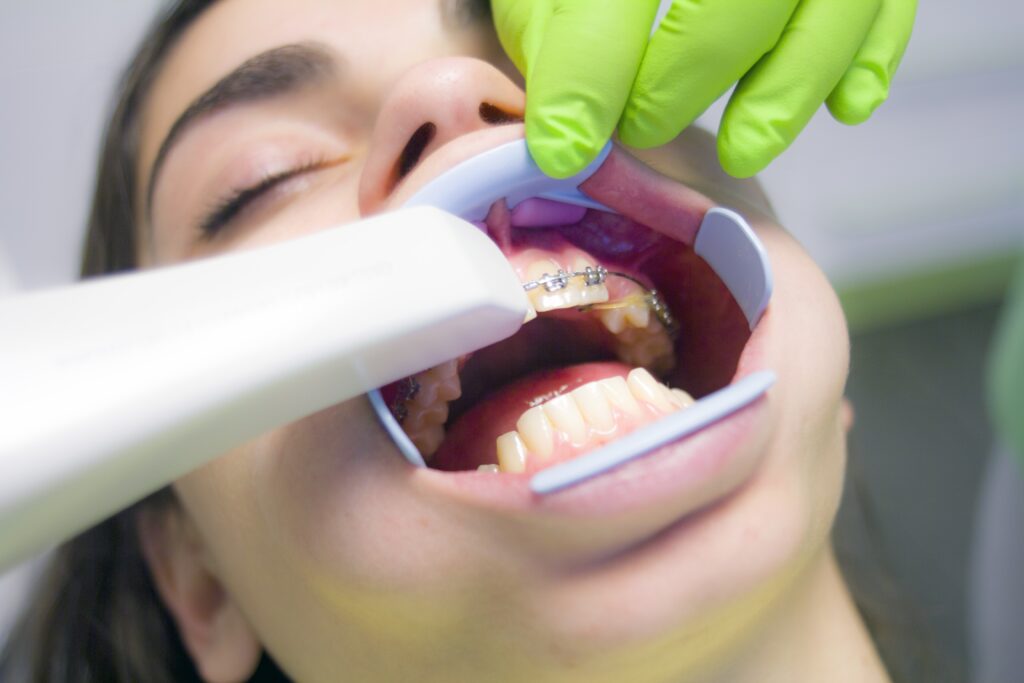Do you ever feel like your mouth is as dry as a desert? Do you constantly need to drink water just to keep your mouth moist? If so, you might be experiencing a condition called dry mouth. A dry mouth can be caused by various factors and can lead to discomfort, difficulty speaking or eating, and even dental problems. But don’t worry! In this blog post, we will discuss the causes of dry mouth, its symptoms, how it’s diagnosed, and most importantly – how to manage it effectively. So let’s dive in and learn How To Manage Dry Mouth for good!
What are the causes of dry mouth?
Dry mouth, also known as xerostomia, can be caused by a variety of factors. One common cause is medication – certain prescription and over-the-counter drugs can reduce saliva production in the mouth. Other causes include dehydration, nerve damage to the head or neck area, autoimmune disorders such as Sjogren’s syndrome, and radiation therapy for cancer.
In addition to medical conditions and medications that decrease saliva production, lifestyle choices can contribute to dry mouth. Smoking and alcohol consumption have been linked to reduced saliva flow in several studies.
Another potential cause of dry mouth is simply age – as we get older our salivary glands may not function as well as they used to. Certain medical treatments like chemotherapy can also lead to decreased saliva production.
There are many different factors that could be behind your dry mouth symptoms. Identifying the underlying cause is key to effectively managing this condition moving forward.

What are the symptoms of dry mouth?
Dry mouth, also known as xerostomia in medical terms, is a condition where the salivary glands don’t produce enough saliva to keep your mouth moist. This leads to irritation and discomfort in the oral cavity. One of the most common symptoms of dry mouth is a feeling of dryness or stickiness in the mouth.
Other symptoms may include difficulty swallowing, speaking or tasting food properly due to lack of moisture. Dry mouth can also cause bad breath, cracked lips and tongue sores. It can even make wearing dentures uncomfortable.
If you have dry mouth for an extended period, it can increase your risk of developing tooth decay and gum diseases because saliva helps neutralize acids produced by bacteria that break down food particles on teeth.
Additionally, people with dry mouths are more prone to develop thrush (yeast infection), which causes white patches inside their cheeks or tongue. They may also experience a burning sensation on their tongue or gums.
It’s important to note that some medications may cause dry mouth as a side effect; therefore, if you’re experiencing any persistent signs of dehydration despite maintaining adequate fluid intake levels throughout the day- consult with your doctor immediately about adjusting medication dosage or switching prescriptions altogether
How is dry mouth diagnosed?
Diagnosing dry mouth involves a thorough medical history review and physical examination by a healthcare professional. The doctor may ask about any medications being taken, as many drugs have dry mouth as a side effect. Additionally, the doctor can check for signs of dry lips, cracked or split skin at the corners of the mouth, and redness in the mouth.
Measuring saliva production is another way to diagnose dry mouth. A sialometer is used to measure how much saliva is produced in a specific time frame. If less than 1 ml of saliva per minute is produced, then it might indicate that an individual has a dry mouth.
Furthermore, blood tests can help detect underlying conditions that cause dry mouth such as Sjogren’s syndrome or diabetes mellitus. Imaging studies like X-rays may also be required if salivary gland disease or tumors are suspected.
It’s important to note that not everyone with symptoms of xerostomia needs testing for diagnosis; however, those who experience persistent symptoms should seek professional medical advice to rule out any underlying health problems causing their condition.
Read More: WHAT ARE THE SYMPTOMS OF ASTHMA & HOW ARE THEY TREATED?
How to manage dry mouth?
If you’re experiencing dry mouth, don’t worry because there are ways to manage it. Here are some tips:
1. Stay hydrated – Drinking plenty of water and other fluids can help keep your mouth moist.
2. Avoid alcohol and caffeine – These beverages can dehydrate you, making your dry mouth worse.
3. Use a humidifier – Adding moisture to the air with a humidifier can help alleviate symptoms of dry mouth, especially at night.
4. Chew sugar-free gum or suck on sugar-free candy – This encourages saliva production which helps keep your mouth lubricated.
5. Brush and floss regularly- Good oral hygiene practices can prevent tooth decay and infections that may exacerbate dry mouth symptoms.
6. Consider using artificial saliva products- Such as sprays, gels, or lozenges specifically formulated for people with dry mouths.
By following these tips, you’ll be able to better manage your dry mouth symptoms and improve overall oral health.

Final Notes
Dry mouth is a common condition that can be managed with the right treatment. It’s essential to understand the causes and symptoms before seeking medical attention. While there are several remedies available over-the-counter, it’s best to consult your doctor for accurate diagnosis and prescription.
With proper care, including practicing good oral hygiene habits and staying hydrated, you can prevent chronic dry mouth from affecting your quality of life significantly. So take control of your symptoms today by following the tips outlined in this article!


